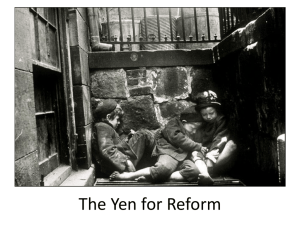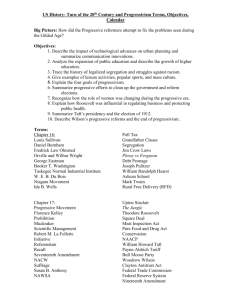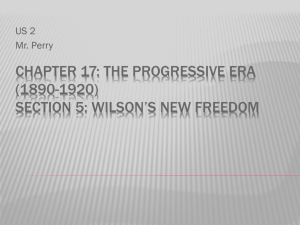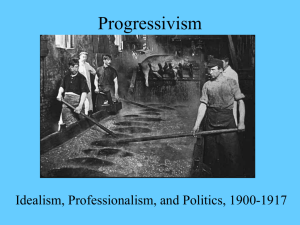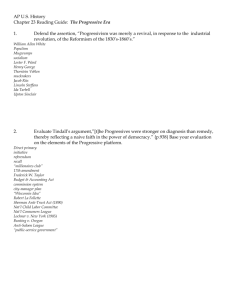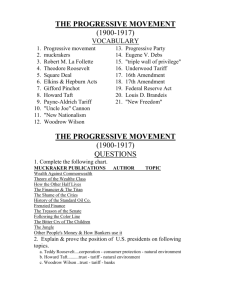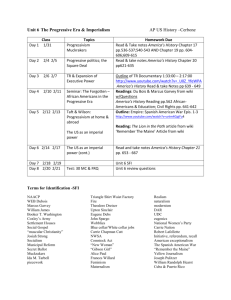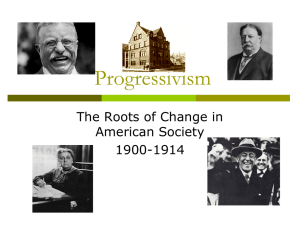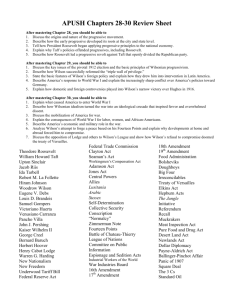Unit XV – The Progressive Era (Chapters 28-29)
advertisement
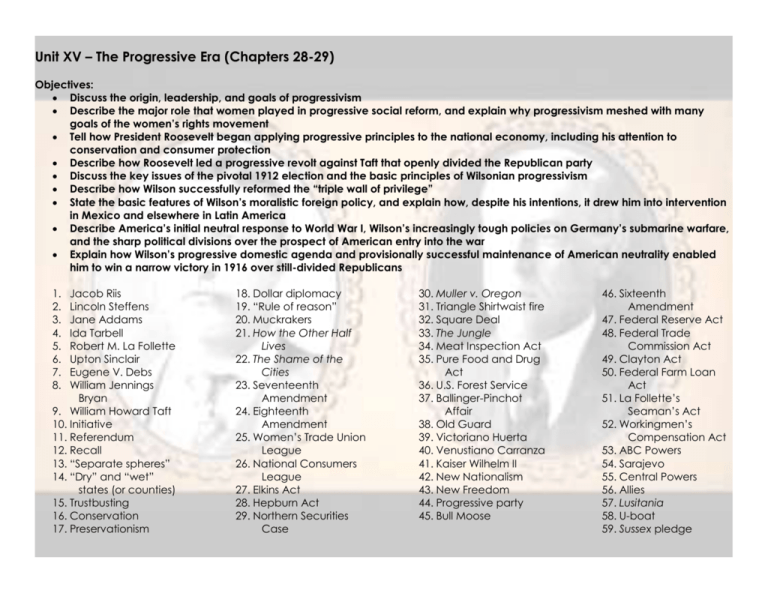
Unit XV – The Progressive Era (Chapters 28-29) Objectives: Discuss the origin, leadership, and goals of progressivism Describe the major role that women played in progressive social reform, and explain why progressivism meshed with many goals of the women’s rights movement Tell how President Roosevelt began applying progressive principles to the national economy, including his attention to conservation and consumer protection Describe how Roosevelt led a progressive revolt against Taft that openly divided the Republican party Discuss the key issues of the pivotal 1912 election and the basic principles of Wilsonian progressivism Describe how Wilson successfully reformed the “triple wall of privilege” State the basic features of Wilson’s moralistic foreign policy, and explain how, despite his intentions, it drew him into intervention in Mexico and elsewhere in Latin America Describe America’s initial neutral response to World War I, Wilson’s increasingly tough policies on Germany’s submarine warfare, and the sharp political divisions over the prospect of American entry into the war Explain how Wilson’s progressive domestic agenda and provisionally successful maintenance of American neutrality enabled him to win a narrow victory in 1916 over still-divided Republicans 1. 2. 3. 4. 5. 6. 7. 8. Jacob Riis Lincoln Steffens Jane Addams Ida Tarbell Robert M. La Follette Upton Sinclair Eugene V. Debs William Jennings Bryan 9. William Howard Taft 10. Initiative 11. Referendum 12. Recall 13. “Separate spheres” 14. “Dry” and “wet” states (or counties) 15. Trustbusting 16. Conservation 17. Preservationism 18. Dollar diplomacy 19. “Rule of reason” 20. Muckrakers 21. How the Other Half Lives 22. The Shame of the Cities 23. Seventeenth Amendment 24. Eighteenth Amendment 25. Women’s Trade Union League 26. National Consumers League 27. Elkins Act 28. Hepburn Act 29. Northern Securities Case 30. Muller v. Oregon 31. Triangle Shirtwaist fire 32. Square Deal 33. The Jungle 34. Meat Inspection Act 35. Pure Food and Drug Act 36. U.S. Forest Service 37. Ballinger-Pinchot Affair 38. Old Guard 39. Victoriano Huerta 40. Venustiano Carranza 41. Kaiser Wilhelm II 42. New Nationalism 43. New Freedom 44. Progressive party 45. Bull Moose 46. Sixteenth Amendment 47. Federal Reserve Act 48. Federal Trade Commission Act 49. Clayton Act 50. Federal Farm Loan Act 51. La Follette’s Seaman’s Act 52. Workingmen’s Compensation Act 53. ABC Powers 54. Sarajevo 55. Central Powers 56. Allies 57. Lusitania 58. U-boat 59. Sussex pledge
